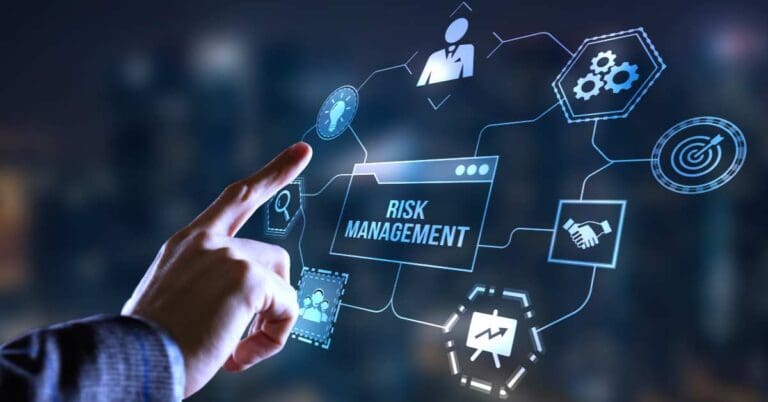Risk Assessments: Definitions & Different Types

When an auditor or regulator asks for a risk assessment, it is essential to understand exactly what they are looking for.
While the type of risk assessment will depend on its purpose and/or the type of risks your organization may be exposed to, risk assessments are similar in that each plays a central role in identifying and prioritizing risks for efficient and effective risk management.
As true accountants and experts in risk and compliance, we have outlined some essential information regarding risk assessments, why auditors request them, the different types, and how they differ from risk and control matrices.
Important things to know about risk assessments:
- What a Risk Assessment is
- Why auditors ask for Risk Assessments
- What the most common types of Risk Assessments are
- How a Risk Assessment differs from a Risk and Control Matrix (RCM)
What is a Risk Assessment?
A risk assessment is the process of identifying risks that will have an impact on the achievement of objectives and assessing the level of each risk.
How these risk levels are determined depends on the type of risk assessment and how management wants to assess it. The impact of the risk and likelihood of it occurring are sometimes used in measuring the risk level.
Findings from a risk assessment are used to guide an organization’s overall risk management and monitoring strategy.
Why do auditors ask for Risk Assessments?
Public companies, and their auditors, evaluate the company’s control environment based on the criteria established in the COSO framework. One of the five components in this framework focuses solely on identifying and assessing risk.
The four principles under this component include: specifying clear objectives, identifying risk to the achievement of those objectives, consideration of potential fraud, and incorporation of changes impacting the business.
Auditors ask for risk assessments because they want to get an understanding of an organization’s risk management program, what risks have been identified, and how they are assessed, prioritized and managed.
What are common types of Risk Assessments?
SOX Risk Assessment
SOX risk assessments focus on risks impacting information disclosed in the external financial report (for example, the 10Q or 10K).
The outcome determines the scope and priorities of the SOX or Internal Control Over Financial Reporting (ICFR) effectiveness evaluation activities for the next fiscal year. The assessment helps management determine if certain processes, accounts or systems can be excluded from SOX monitoring activities.
If you are looking for some expert advice regarding how to prepare for a SOX risk assessment, head to our blog: SOX Risk Assessment: How to Prepare, Steps & Challenges.
Enterprise Risk Assessment
In contrast with the financial focus of a SOX risk assessment, this assessment has an enterprise-wide focus.
From macroeconomic factors to company specific matters, enterprise risk assessments provide an all-encompassing view of the risks an organization may face, including strategic, financial, operational and information technology (IT) risks.
Fraud Risk Assessment
The focus of this assessment is on fraud risks, such as financial statement fraud, corruption and bribery, asset misappropriation, cyber fraud, payroll fraud and more.
While some risks apply to most organizations, this type of assessment considers risks unique to the industry, the type of organization and the locations it operates in.
The purpose of a fraud risk assessment is to guide an organization to proactively address fraud risks by developing and implementing control activities to prevent fraud or minimize losses.
IT Security Risk Assessment
IT security risk assessments focus on risks regarding the protection of systems and data with the purpose of helping an organization develop a proactive strategy to ensure the confidentiality of digital information and reduce some of the negative impacts a security breach can cause.
These assessments may utilize established frameworks such as ISO 27001 or NIST and should include risks that are specific to a company’s IT footprint and industry.
To learn more about how to implement IT controls to reduce risk, head to our blog: IT Controls: Implementation Tips, Benefits & Steps.
How does a Risk Assessment differ from a Risk and Control Matrix (RCM)?
The format of the risk assessment depends on the purpose of the assessment but will usually identify risks inherent to the organization and the assessed risk levels. Risk assessments do not typically include controls but may occasionally if management wants to look at residual risk levels in comparison to their risk tolerance thresholds.
An RCM maps risks to the control activities implemented to reduce the risks. The purpose of an RCM is to identify risks not sufficiently covered by controls. An RCM may include other aspects relating to the controls, such as control owners, frequency of performance, and whether the controls are manual or automated.
Final Thoughts on the Different Types of Risk Assessments
In sum, the type of risk assessment depends on the focus of the assessment – but all types of risk assessments are instrumental in helping organizations develop a proactive approach to addressing risks and allocating resources to where they are most needed.
The environment the organization operates in is continuously changing. In order to manage risk and stay nimble and competitive, it is vital to frequently revisit your risk register and assessment to ensure changes within the risk landscape are properly incorporated and managed.
If you’re looking for some guidance with your next risk assessment, our experienced team at Bridgepoint is here to help. Whether you need help building frameworks for internal controls, regulatory compliance, or sustainable governance, our experts are ready to identify and mitigate risk so you can focus on your competitive edge.
Looking to Safeguard Your Organization?
At Bridgepoint Consulting, we understand that it can be difficult to meet rising regulatory demands in a market rife with continually evolving standards. Whether you need help building frameworks for internal controls, regulatory compliance or sustainable governance, our experts are ready to identify and mitigate risk so you can focus on your competitive edge.
Contact us today or learn more about how we can help at the link below.



